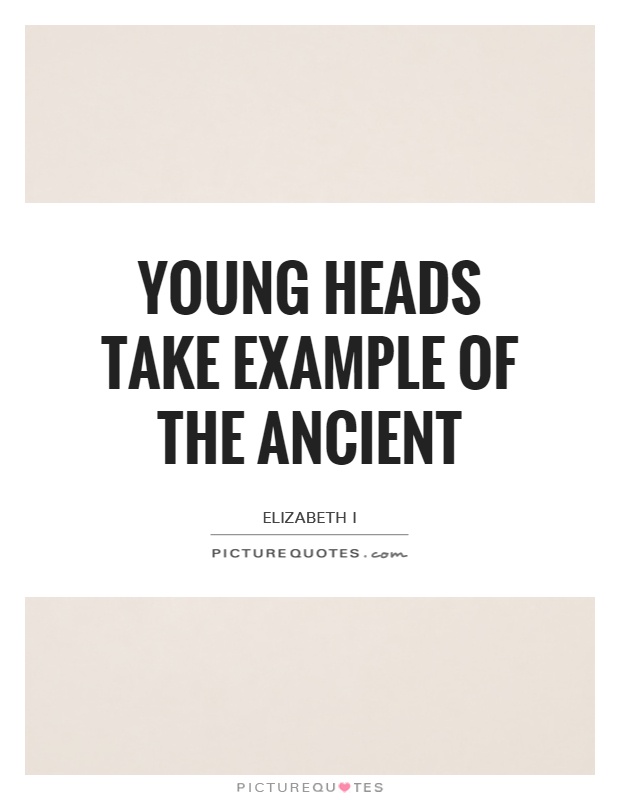Young heads take example of the ancient

Young heads take example of the ancient
In the context of Elizabeth I, the phrase "Young heads take example of the ancient" holds significant meaning. Elizabeth I, also known as the Virgin Queen, ruled England from 1558 until her death in 1603. She was a powerful and influential monarch who faced numerous challenges during her reign, including threats from foreign powers, religious conflicts, and internal political strife. Despite these challenges, Elizabeth I was able to maintain stability and prosperity in England, earning her a place in history as one of the greatest monarchs of all time.One of the key reasons for Elizabeth I's success as a ruler was her ability to learn from the past. She was a keen student of history and often looked to the examples set by the ancient rulers of Rome and Greece for guidance. By studying the successes and failures of these ancient leaders, Elizabeth I was able to make informed decisions that helped her navigate the complex political landscape of her time.
The phrase "Young heads take example of the ancient" can be interpreted as a call for the younger generation to learn from the wisdom and experience of their elders. In the case of Elizabeth I, this meant looking to the lessons of history to guide her decisions as a ruler. By studying the actions of past leaders, Elizabeth I was able to avoid repeating their mistakes and instead build upon their successes.
Elizabeth I's commitment to learning from the past was evident in her approach to governance. She surrounded herself with advisors who were well-versed in history and encouraged them to draw on the lessons of the past when making policy decisions. This approach helped Elizabeth I to establish a stable and prosperous reign that laid the foundation for England's future success.












 Friendship Quotes
Friendship Quotes Love Quotes
Love Quotes Life Quotes
Life Quotes Funny Quotes
Funny Quotes Motivational Quotes
Motivational Quotes Inspirational Quotes
Inspirational Quotes